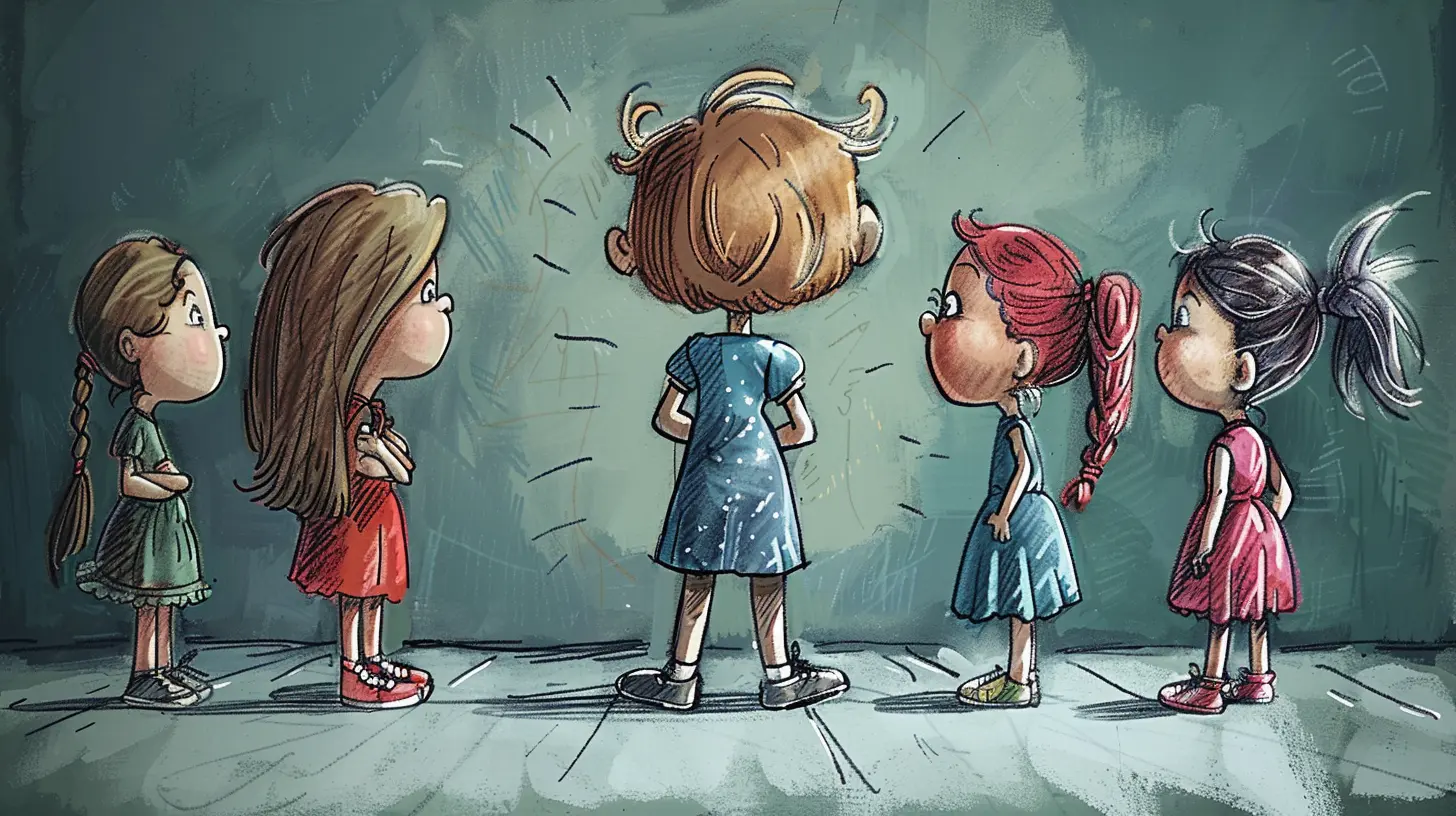Teaching Students About the Power of Words: Combating Verbal Bullying
28 September 2025
Introduction
We’ve all heard the phrase, “Sticks and stones may break my bones, but words will never hurt me.” But let’s be honest—words do hurt. In fact, they can leave wounds that last much longer than physical ones.
Verbal bullying is a huge issue in schools today. From harsh jokes to cruel insults, words have the power to lift someone up or tear them down. That’s why teaching students about the power of words is crucial. If we help young minds understand the impact of their language, we can create a more respectful and inclusive environment.
So, how do we tackle this issue? Let’s dive in!

Understanding Verbal Bullying
What Is Verbal Bullying?
Verbal bullying happens when someone uses words to humiliate, insult, or intimidate another person. Unlike physical bullying, which leaves visible marks, verbal bullying scars the mind and heart. It includes:- Name-calling and insults
- Spreading rumors
- Mocking or making fun of someone’s appearance, intelligence, or abilities
- Threatening words
- Hurtful teasing
The worst part? These words can stick with a person for years, shaping their self-esteem and emotional well-being.
The Effects of Verbal Bullying
Words can shape a person’s self-image. Imagine hearing, “You’ll never be good enough,” repeatedly. Over time, even the most confident person can start believing it. Some long-term effects of verbal bullying include:- Low self-esteem – Constant insults can make students doubt their worth.
- Anxiety and depression – Hurtful words can lead to serious mental health issues.
- Poor academic performance – When students feel unsafe, they struggle to focus on learning.
- Social withdrawal – Many students avoid social settings to escape bullying.
This is why it’s so important to teach kids that words matter.

Teaching the Power of Words
Encouraging Empathy and Kindness
One of the best ways to fight verbal bullying is by teaching students empathy. When they understand how words affect others, they are more likely to choose kindness over cruelty. Simple ways to encourage empathy include:- Role-playing exercises – Let students step into someone else’s shoes and experience how different words feel.
- Sharing personal stories – When people open up about times they were hurt by words, it creates a connection.
- Encouraging kindness challenges – Small acts of kindness, like complimenting a classmate, can create a positive culture.
The “Think Before You Speak” Rule
A simple but effective lesson is teaching students to pause before they speak. One method is the THINK acronym:- T – Is it True?
- H – Is it Helpful?
- I – Is it Inspiring?
- N – Is it Necessary?
- K – Is it Kind?
If their words don’t pass this test, they shouldn’t say them.
The Ripple Effect of Words
Words are like pebbles dropped in a pond—they create ripples. A single kind word can uplift someone’s day, while a single insult can ruin it.To illustrate this, teachers can:
- Use real-life examples – Share stories of famous people who were affected by words, both positively and negatively.
- Write anonymous compliments – Have students write kind words about their classmates to show how uplifting words can be.
- Create a “Words Have Power” bulletin board – Display positive quotes and encourage students to contribute their own.

Combating Verbal Bullying in Schools
Promoting Open Communication
If students don’t feel safe speaking up about bullying, the problem will persist. Schools should promote a culture where students feel comfortable reporting verbal bullying. This can be done by:- Setting up anonymous reporting systems
- Encouraging teachers to check in with students regularly
- Educating students on how to stand up for themselves and others
Teaching Assertive Responses
Students need to know how to respond to verbal bullying without becoming aggressive themselves. Some effective ways include:- Ignoring the bully – Sometimes, bullies thrive on reactions. Ignoring them can take away their power.
- Using humor – A lighthearted response can defuse tension.
- Assertive comeback lines – Simple, confident responses like “I don’t appreciate that” or “That’s not true” can shut down a bully’s words.
Role-playing these scenarios in class can build students' confidence in handling real-life situations.
Encouraging Bystander Intervention
Bystanders play a crucial role in stopping verbal bullying. When students witness bullying and do nothing, it gives the bully more power. However, if they step in, they can change the situation.Ways to encourage bystander intervention include:
- Teaching students to speak up for their peers.
- Encouraging them to support the victim after an incident.
- Reminding them that even small actions, like changing the subject or showing kindness, can make a big difference.

The Role of Teachers and Parents
Teachers as Role Models
Teachers have a significant influence on students. If they model respectful and kind communication, students will follow suit. Some ways teachers can help include:- Using positive reinforcement – Praise students when they use kind and respectful language.
- Addressing bullying immediately – Don’t ignore verbal bullying; tackle it head-on.
- Creating a safe environment – Let students know that they will be heard and supported.
Parents’ Role in Shaping Language
Parents play a major role in teaching kids how to use words responsibly. At home, they can:- Monitor their child’s language – Make sure they aren’t using hurtful words toward siblings or friends.
- Have open conversations about bullying – Ask kids if they’ve experienced or witnessed verbal bullying.
- Lead by example – If parents use respectful language, kids will too.
Conclusion
Words are one of the most powerful tools we have. They can either build people up or break them down. Teaching students about the power of words and the dangers of verbal bullying is essential in creating a positive and supportive school environment.By fostering empathy, promoting kindness, and encouraging bystander intervention, we can help students understand that their words truly matter. After all, the right words at the right time can change a life.
all images in this post were generated using AI tools
Category:
Bullying PreventionAuthor:

Anita Harmon
Discussion
rate this article
1 comments
Shiloh McLoughlin
What a fantastic read! Empowering students with the right words can change lives. Let’s inspire kindness through language and create a supportive community. Words have the power to uplift!
October 10, 2025 at 10:44 AM

Anita Harmon
Thank you for your thoughtful comment! I completely agree—words hold incredible power, and fostering a supportive community through language is essential in combating verbal bullying. Let’s keep inspiring kindness together!


